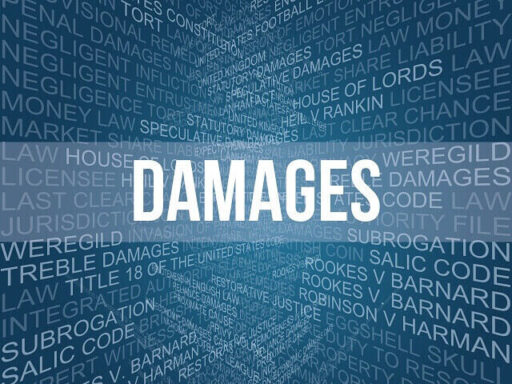The idea of putting a dollar amount on your injuries, pain, and mental anguish can seem impossible. However, it is an important part of filing an injury claim.
Insurance companies and your attorney will consider your injuries and determine how much they are worth. This is by far the most important and difficult portion of filing an injury claim.
What the Insurance Company is Required to Compensate
Compensation comes in the form of damages. Typically, a victim receives compensation from the defendant’s insurance, such as automobile or liability insurance. The insurance company will compensate for:
- Medical care and related expenses
- Lost wages
- Permanent disability
- Permanent disfigurement
- Loss of enjoyment
- Emotional damages
- Property damages
The Use of Multipliers
Realize that an insurance company differs greatly from a jury when it comes to determining damages. A jury will base their judgment on core numbers and emotion, while insurance companies use multipliers. Multipliers are numbers used to multiply the total damages by a specific value – usually 1.5 to 4 – to determine the amount that should be awarded for pain and suffering.
Higher multipliers would be used for catastrophic or permanent injuries, while a lower multiplier would apply in a situation where a victim suffered, but made a full recovery.
Values Still Come from Numbers Backed by Evidence
When your attorney or the insurance company is placing a “value” on your injury, they are not guessing at your losses. Instead, they start with the evidence. The evidence helps them calculate your actual losses. Then, they would use their multipliers to determine compensation that cannot be easily computed, such as pain and suffering.
Evidence used to value your injuries and losses includes:
- Medical Bills Paid and Receipts – All medical bills you have received and paid, or insurance explanation of benefits showing what your health insurance has covered are evidence. Also, receipts for any office copayments, deductibles and other medical costs you paid out-of-pocket help to calculate your injury.
- Repair Bills for Your Vehicle – If your vehicle requires repair, you should have bills or statements from your automobile insurance company showing how much was paid to fix the vehicle.
- Medical Records – Your medical records will prove what treatments you have received, surgeries, hospitalizations, and your prognosis. Your doctor will need to testify about your recovery expectations, and another expert may be used to corroborate their assessment.
- Lost Wages Evidence – Paycheck stubs showing how much you used to earn and a statement from your employer about the hours you have missed will help establish your lost wage claims. If you cannot work after the settlement, your attorney will work with financial professionals to determine your wages lost over time as well.
Leave the Calculations to an Attorney
The last thing you need to worry about as a victim is how much your overall damages should be. Instead, you need someone with the proper experience to shoulder this burden for you.
Brett McCandlis Brown & Conner, PLLC can help you with your injury claim. We have a team of experts ready to not only tell you how much your case is worth – but fight for your right to collect compensation.
Schedule a consultation with our attorneys today by calling 800-925-1875 or request more information online.


